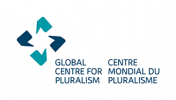In this Intersections Paper for the Global Centre for Pluralism, I examine the added value of a pluralism perspective for conflict prevention.
Many conflicts around the world stem from the treatment of diversity. Long-standing economic inequalities between groups or the systematic exclusion of certain groups from political power often lead to conflict. A pluralism approach to conflict prevention requires practitioners to identify the divisions and exclusions in a society that can lead to violence long before conflict is imminent. Paying careful attention to these early warnings of conflict, and addressing them before they are exacerbated, can pave the way for institutional and cultural environments that foster inclusion and thus, more sustainable peace.
This report is an open-access publication.

